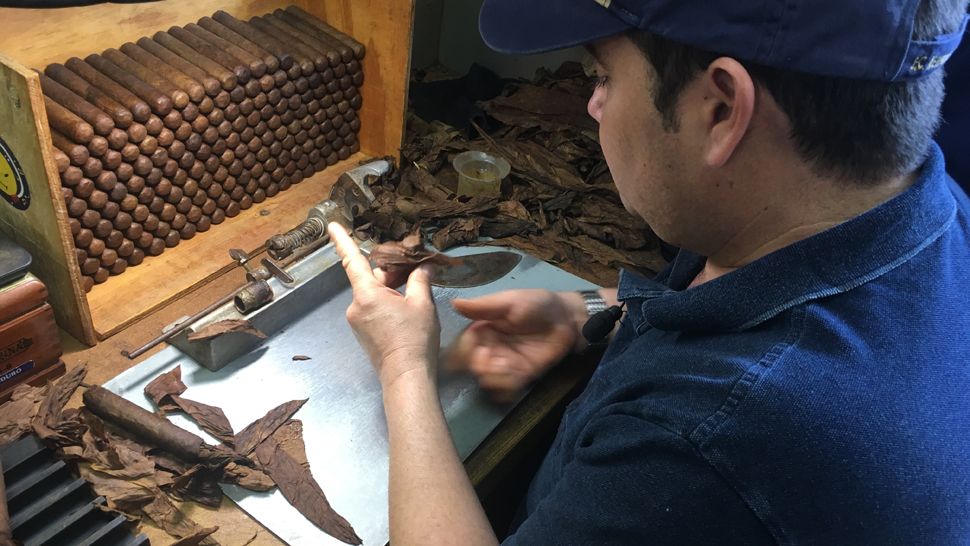TAMPA, Fla. -- Tampa's last cigar factory has re-launched a campaign to end FDA regulations on premium cigars, regulations owners say could force them to shut down for good.
- J.C. Newman Cigar Company is Tampa's last cigar factory
- Original machines push out 65,000 cigars per day
- Increased regulatory fees threaten continued operation
Inside the J.C. Newman Cigar Company's red brick building, you can step back in time.
"These cigar machines are hand-operated and were made between 1931 and 1934," explained company co-owner Bobby Newman, pointing out machines that push out 65,000 cigars a day.
Other cigars the company produces, however, are hand-rolled and cut to perfection for a slower burn that earns those cigars their "premium" status.
"We live in a 24/7 life," Newman said. "When you light a cigar, time slows down."
The factory operates thanks to its 135 employees. However, those employees now stand to lose their jobs, as the company faces having to close in the face of government regulations.
"The average person has been here 27 years," Newman explained. "The average age is 50 years old. Where is someone 55 to 60 going to get a job?"
Newman told us the FDA imposed regulations that went into effect in 2016 that lumped premium cigars in with cigarettes and smokeless tobacco as an expansion of the 2009 Tobacco Control Act.
The result of those regulations? Newman said his company is paying more than $3,000 per day in fees, a steep price that puts his company's continued existence at risk.
Newman disputes the designation, saying his higher priced products are anything but common and should not be considered in that category.
The cigar industry as a whole will have one last chance to prove the difference in their products, as the FDA gets ready to reevaluate the regulations this coming August.
"We get another chance, we get another bite of the apple, to save our industry," Newman said.
Click HERE to visit the "Save Cigar City" campaign website. You'll find a link there to share your comments on the issue with the FDA, who is accepting public comment until June 25.



